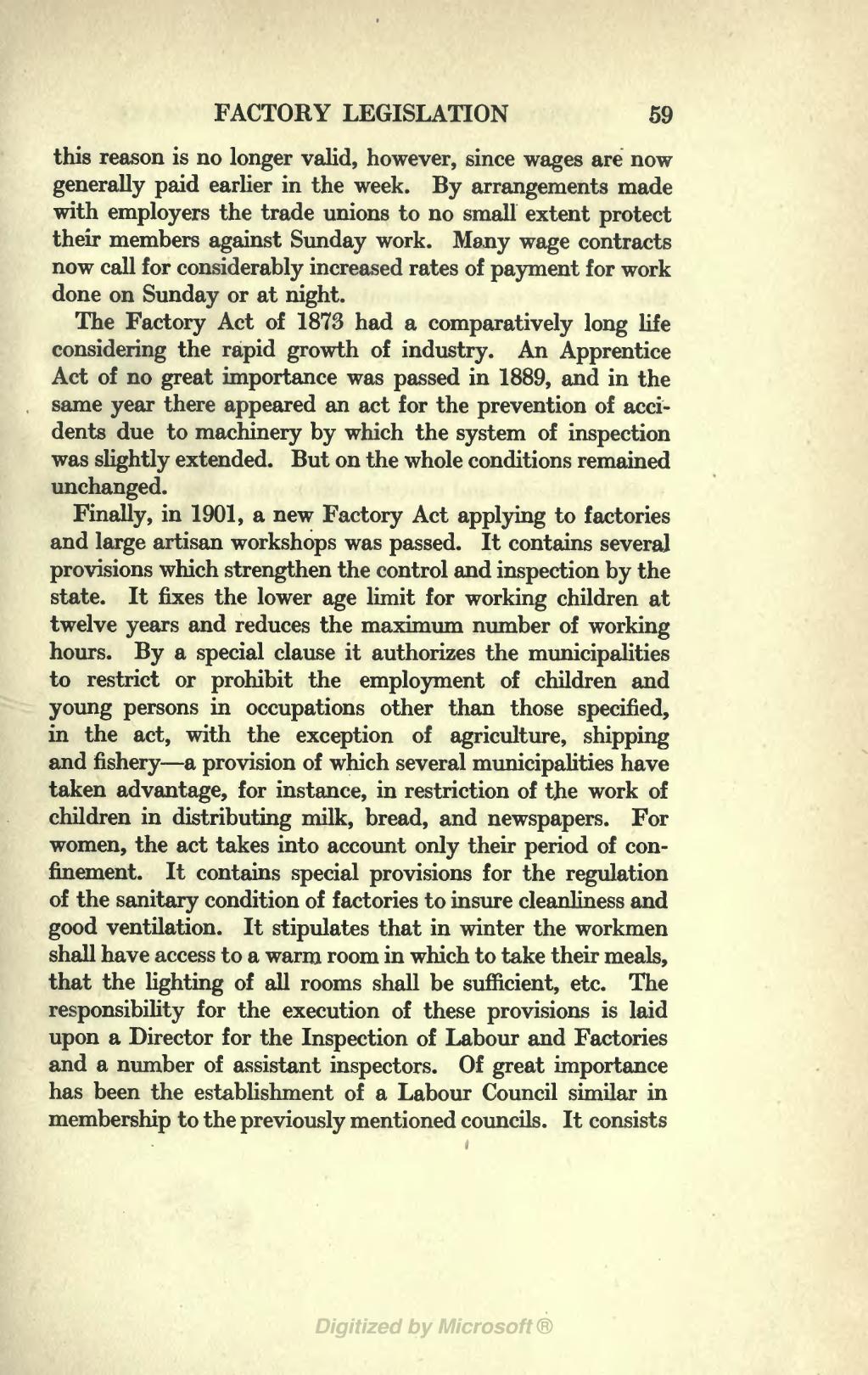this reason is no longer valid, however, since wages are now generally paid earlier in the week. By arrangements made with employers the trade unions to no small extent protect their members against Sunday work. Many wage contracts now call for considerably increased rates of payment for work done on Sunday or at night.
The Factory Act of 1873 had a comparatively long life considering the rapid growth of industry. An Apprentice Act of no great importance was passed in 1889, and in the same year there appeared an act for the prevention of accidents due to machinery by which the system of inspection was slightly extended. But on the whole conditions remained unchanged.
Finally, in 1901, a new Factory Act applying to factories and large artisan workshops was passed. It contains several provisions which strengthen the control and inspection by the state. It fixes the lower age limit for working children at twelve years and reduces the maximum number of working hours. By a special clause it authorizes the municipalities to restrict or prohibit the employment of children and young persons in occupations other than those specified, in the act, with the exception of agriculture, shipping and fishery a provision of which several municipalities have taken advantage, for instance, in restriction of the work of children in distributing milk, bread, and newspapers. For women, the act takes into account only their period of confinement. It contains special provisions for the regulation of the sanitary condition of factories to insure cleanliness and good ventilation. It stipulates that in winter the workmen shall have access to a warm room in which to take their meals, that the lighting of all rooms shall be sufficient, etc. The responsibility for the execution of these provisions is laid upon a Director for the Inspection of Labour and Factories and a number of assistant inspectors. Of great importance has been the establishment of a Labour Council similar in membership to the previously mentioned councils. It consists
